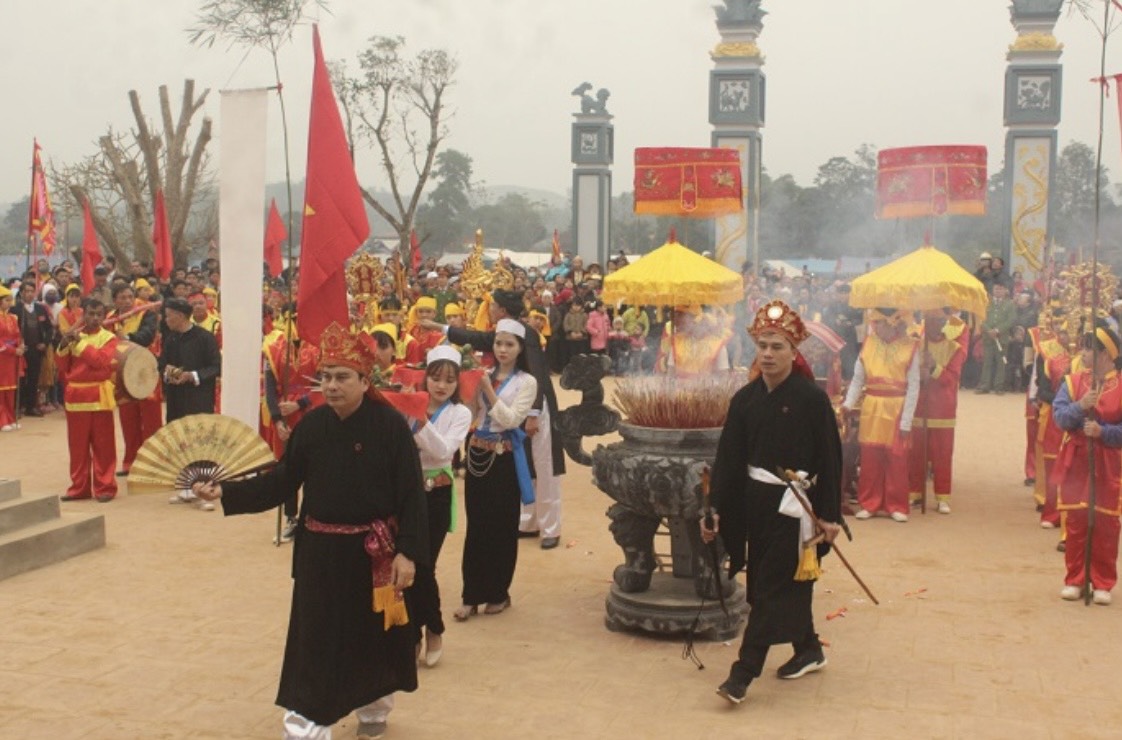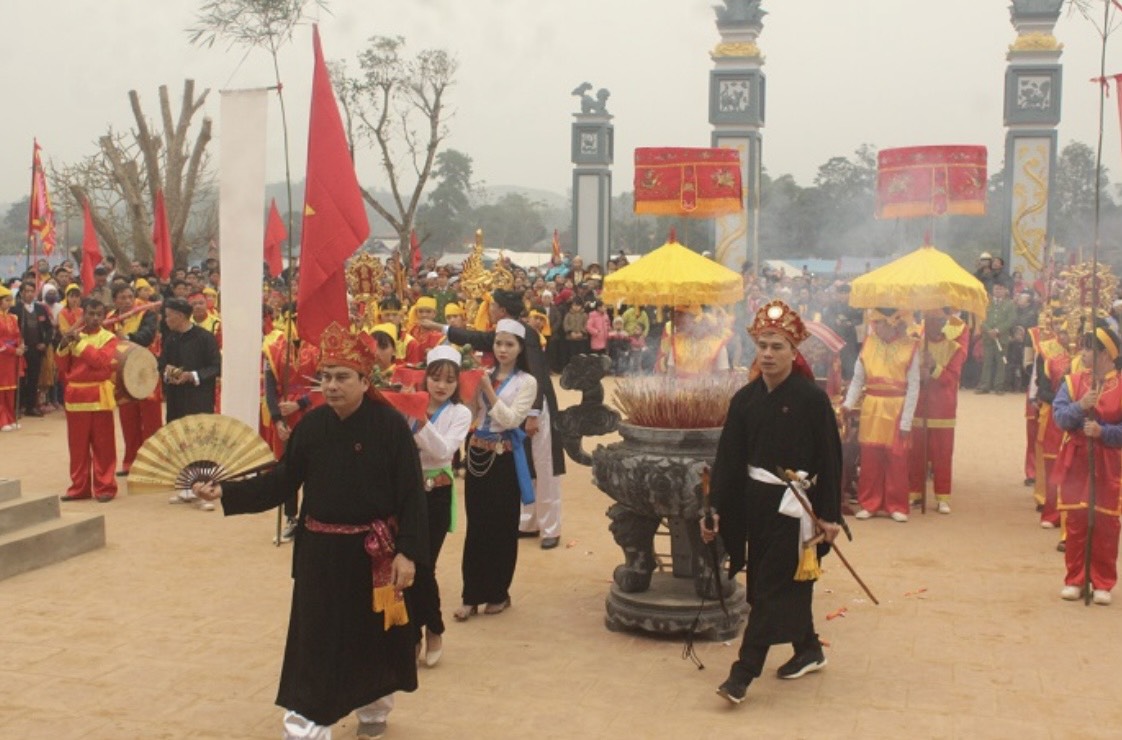
(HBO) - Mo Muong is a unique cultural heritage of Muong ethnic group in Hoa Binh province and Lac Son district in particular. Mo Muong in Lac Son district has 23 traditional rituals and over 50 artisans are practicing it. The district is effectively preserving and upholding activities of Mo Muong artisans, as well as restoring traditional Mo prayers and collecting those in oblivion to hand them down to later generations.

A shaman performs Mo rituals at Khoi communal house festival in An Nghia
commune, Lac Son district.
For Muong people, Mo holds significance in the
social life, helping motivate and relieve their mind in face of events. Mo is
performed by shamans who possess Mo knowledge, remember tens of thousands of Mo
sentences and are skilled in practicing rituals. In Muong ethnic society, Mo
performers are folk intellectuals and prestigious persons in the community. At
present, Lac Son district has nearly 20 Mo melodies in various types of folk
beliefs and festivals. The practice of Mo has so far been narrowed but its
essence remains.
In order to preserve, maintain and develop
traditional culture with the goal of inheriting and upholding unique cultural
values of Muong ethnic group, Lac Son district has made it easier for Mo Muong artisans
to perform. Additionally, Mo artisans and lovers also teach the art to their
children while linking Mo Muong culture with tourism activities to effectively promote
its value via traditional festivals such as Dinh Bang festival in Ngoc Lau
commune and But Khu Dung procession festival in Nhan Nghia commune. The
district also opened a course to teach Muong language and traditional Mo Muong
to young generations, laying a foundation for them to restore and preserve the
beauty and humanitarian value of Muong ethnic group, uphold Mo Muong art, and
organise culture-art activities to meet public demand.
Chief of the district Office of Culture and
Sports Nguyen The Hung said authorities of Lac Son district plan to build a
Muong cultural space preservation area on a site of over 10ha in Vanh village,
Yen Phu commune. Those under preservation include Mo Muong, Muong gongs, ethnic
musical instruments, Thuong rang and Bo meng singing, house on stilts and
customs of Muong ethnic people, contributing to raising the sense of
responsibility, especially among young generations, for preserving and
upholding the value of Muong cultural heritages, turning the Muong cultural
space into an outstanding tourist product, for the sake of economic and
socio-cultural development in the locality./.
With an increasingly vibrant and widespread emulation movement aimed at building cultured residential areas and cultured families, Yen Thuy District has been making steady progress toward improving both the material and spiritual well-being of its people, while fostering a civilized, prosperous, beautiful, and progressive community.
Once lacking recreational spaces and community facilities, Residential Group 2 in Quynh Lam Ward (Hoa Binh City) has recently received attention for the construction of a new, spacious, and fully equipped cultural house. The project followed the model of state support combined with public contributions in both labor and funding.
The "All people unite to build cultural life" movement, which has been effectively integrated with Kim Boi district’s socio-economic development goals, is fostering a lively spirit of emulation across local residential areas, hamlets, villages, public agencies, and enterprises. In addition, through the initiative, traditional cultural values are being preserved and promoted, while community solidarity and mutual support in poverty reduction and economic development are being strengthened.
A working delegation of the Hoa Binh provincial People’s Committee led by its Permanent Vice Chairman Nguyen Van Toan on June 11 inspected the progress of a project to build the Mo Muong Cultural Heritage Conservation Space linked to tourism services in Hop Phong commune, Cao Phong district.
Born and growing in the heroic land of Muong Dong, Dinh Thi Kieu Dung, a resident in Bo town of Kim Boi district, in her childhood was nurtured by the sweet lullabies of her grandmother and mother. These melodies deeply imprinted on her soul, becoming an inseparable part of her love for her ethnic group's culture. For over 20 years, this love for her hometown has driven Dung to research, collect, and pass down the cultural values of the Muong people to future generations.
In the final days of May, the Ethnic Art Troupe of Hoa Binh Province organized performances to serve the people in remote, mountainous, and particularly disadvantaged areas within the province. These were not just ordinary artistic shows, but they were the meaningful journeys aimed at spreading cultural values, enhancing the spiritual life of the people and contributing to the preservation of ethnic minority cultural identities.



